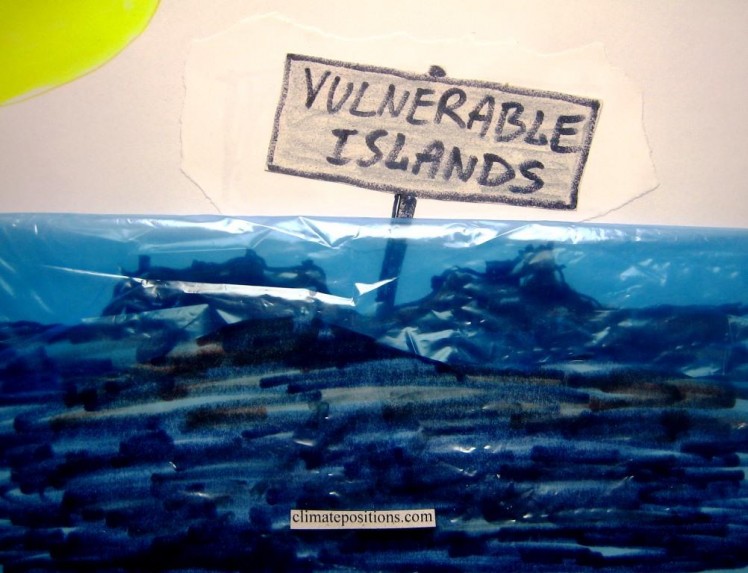New at COP21: The Vulnerable Twenty Group (V20)

2015
Prior to COP21 in Paris in December twenty countries most at risk from the effects of global warming has formed ‘The Vulnerable Twenty Group (V20)’. Unified, the new group hopes for greater access to climate finance for adaptation and mitigation. The twenty countries representing almost one-tenth of the world’s population are: Bangladesh, Philippines, Ethiopia, Vietnam, Tanzania, Kenya, Afghanistan, Nepal, Ghana, Madagascar, Rwanda, Costa Rica, Bhutan, Timor-Leste, Maldives, Barbados, Vanuatu, Saint Lucia, Kiribati and Tuvalu. The first thirteen on the list have full data in ClimatePositions and they are all Contribution Free (no Climate Debt) among 147 countries (see the ‘ranking’). The last seven are examined below in terms of climate change performance.
The current CO2 Emissions from fossil fuels of Timor-Leste, Vanuatu, Kiribati and Tuvalu are between 0.4 and 0.7 tons per capita and all four are de facto Contribution Free regardless the values of missing data – more information is available in the menu ‘Calculations (Excel)’. The situation is different with Maldives (Ecological Footprint is missing), Barbados (Ecological Footprint is missing) and Saint Lucia (Ecological Footprint and Environmental Performance are missing). If the missing data of these three countries are set at world average, then the accumulated Climate Debt would be as follows:
- Barbados: $511 per capita (total: $147 million)
- Maldives: $267 per capita (total: $105 million)
- Saint Lucia: $207 per capita (total: $34 million)
The annual average per capita CO2 Emissions from fossil fuels were: Barbados (5.0 tons in the 1990s and 5.3 tons between 2000 and 2013), Maldives (0.9 tons in the 1990s and 2.5 tons between 2000 and 2013) and Saints Lucia (1.3 tons in the 1990s and 2.5 tons between 2000 and 2013). For comparison, the average global CO2 Emissions between 2000 and 2013 were 4.3 tons per capita.
Except for Barbados, Maldives and Saint Lucia (which are not entirely without responsibility for climate change), V20 has a strong moral case in their demands for compensation from climate-destructive countries (see the ‘shares of global Climate Debt’). At some point, collective legal actions might come into consideration as an alternative to the endless COP negotiations.
Note that the V20-countries are also members of other COP country groups (submission groups). Read the article ‘Country groups and positions at COP19’.
.
[…] http://climatepositions.com/new-at-cop21-the-vulnerable-twenty-group-v20/ […]